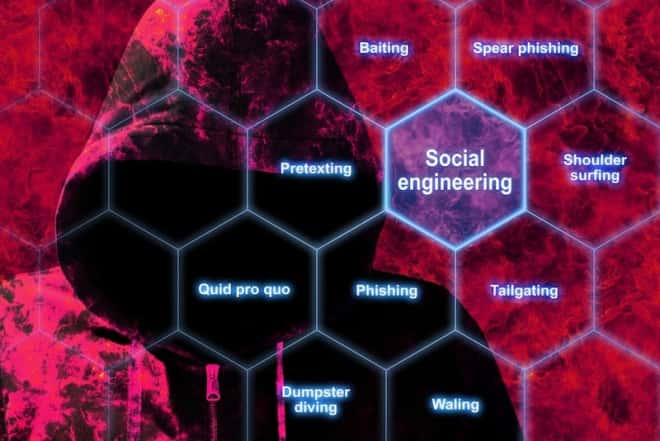Types of social engineers

Related: What is
social engineering?
There are many different forms of social
engineering, which can be both malicious and benevolent, motivating and destructive.
A brief description of the various forms of social engineers follows.
1. Hackers
The security of software produced by
software vendors continues to improve, and attacking software has become
increasingly difficult as a result. As attacks on software and networks (e.g.,
remote intrusions) have become increasingly difficult, hackers are now resorting to
social engineering attacks. Through the use of hardware technology and some personal
skills, hackers are now using social engineering in both large and small attacks
around the world.
2. Penetration testers
Because
real-world
penetration
testers (also known as infiltrators) are inherently aggressive, such
individuals are second only to hackers. Real penetration testers learn and use the
techniques used by malicious hackers to help secure their clients. They have the
skills of a malicious hacker, but do not profit from the information obtained in the
attack and do not harm the target.
3. Spies
Spies
treat social engineering as a way of life, often utilizing every aspect of the
social engineering framework, and can be considered experts in the subject. Spies
around the world learn ways to "fool" people, to be able to convince them that they
are someone or not someone. In addition to learning social engineering techniques,
spies also learn more or less about the business or government they are infiltrating
in order to gain their trust.
4. Identity thieves
Identity
thieves use personal information such as another person's name, bank account number,
address, birthday and Social Security number without the person's knowledge. This
crime can take various forms, including dressing up in certain work clothes to
impersonate someone in that industry or setting up elaborate scams. Identity thieves
also use a variety of social engineering techniques, and over time, they become
bolder and more indifferent to the loss of others.
5. Disgruntled
employees
After an employee becomes dissatisfied with the
company, their relationship with their employer often enters a state of hostility.
This is often a one-sided situation, as employees will deliberately hide the level
of dissatisfaction to reduce career risk. But when dissatisfaction increases, they
may commit various crimes such as theft and vandalism.
6. The clever
scammers
Scammers prey on the greed of others to induce the
idea of "getting rich". They can read people's minds and determine if they are the
right "target" by looking at small details. They are also very skilled at creating a
buzz and making the target think it is a godsend.
7. High-end
headhunters
Headhunters must also understand social engineering
techniques, including the psychological principles of grooming and social
engineering. They are masters at reading people's psychology and motivations. Very
often, headhunters need to consider and cater not only to the needs of the
candidate, but also to take a thorough look at the employer's thoughts.
8. Salespeople
Similar to headhunters, salespeople
must master many interpersonal skills. Many experienced salespeople say that a good
salesperson doesn't need to manipulate others, but should use his or her skills to
find out what people need and see if he or she can meet those needs. The art of
selling includes information gathering, coaxing, influencing, psychological grip,
and many interpersonal skills.
9. Governments
Although
government is rarely seen as a social engineer, it uses social engineering to
control the distribution of information and to manage people. Many government
departments use social acceptance, authority, and scarce resources to ensure that
goals are controlled. This type of social engineering is not always negative because
some governments deliver messages that are beneficial to the people, and by using
some elements of social engineering, these messages become more appealing and more
widely accepted.
10. Doctors, psychologists and lawyers
People in these professions may not seem to be the same as other social
engineers, but they also use the same methods used by the social engineers mentioned
above. They must use elicitation, proper conversation and questioning tactics, and
many (if not all) of the psychological principles of social engineering to
manipulate the "target" (client) into taking the actions they desire.